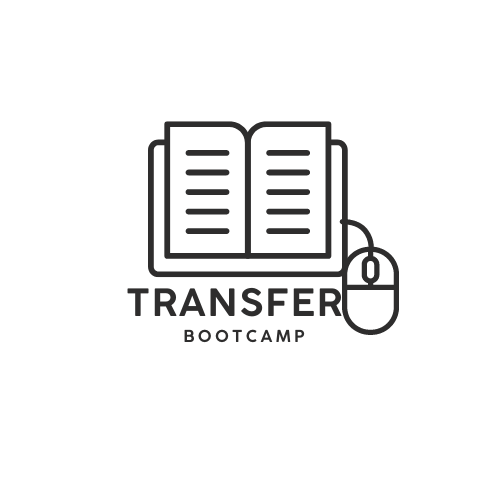Adaptive Quiz Generation Software
Adaptive quiz generation software is revolutionizing how educators and trainers assess and reinforce learning. By leveraging advanced technologies, these tools offer a more personalized experience that can significantly enhance a learner’s engagement and knowledge retention.
Understanding Adaptive Learning
Adaptive learning is an educational method that tailors the learning experience to each individual’s needs and performance level. Unlike traditional learning models that apply a uniform pace and expectation for all learners, adaptive learning material adjusts automatically, creating a personalized path through academic or workplace content. This approach ensures that you, as an educator or trainer, can meet each learner where they are, providing support or challenges as needed.
In the context of learning management systems (LMS) or mobile learning apps, adaptive learning technologies can shape digital channels to focus on what each learner needs to know to progress. The technology ensures that learners only move forward when they have mastered previous concepts, fostering a mastery-based learning environment (ELM Learning).
Benefits of Adaptive Quizzes
Adaptive quizzes offer numerous benefits for learners and educators alike. Here are some key advantages:
- Personalized Learning Paths: By adapting to the individual’s performance, adaptive quizzes ensure that each learner receives a custom learning experience that targets their specific strengths and areas for improvement.
- Enhanced Engagement: The personalized nature of adaptive quizzes keeps learners engaged, as the material remains relevant and challenging without being overwhelming.
- Improved Knowledge Retention: Adaptive learning technology often includes spaced repetition of difficult points, which improves long-term knowledge retention and recall.
- Efficient Use of Time: Learners spend time on material they have yet to master, which makes learning more efficient and reduces time wasted on concepts they already understand.
- Data-Driven Insights: AI algorithms in adaptive quiz generation software can analyze student performance data to provide educators with insights into learning trends and areas where students may need additional support.
Embracing adaptive quiz generation software in your virtual classroom platforms, e-learning content management systems, or corporate training environment can lead to more effective and engaging learning experiences. Whether you are looking to enhance gamification in e-learning, provide personalized recommendations, or simply create more dynamic assessments, adaptive quizzes are an invaluable tool in your e-learning toolkit.
Implementing Adaptive Quizzes
With the rise of personalized learning experiences, adaptive quiz generation software has become a powerful tool in the hands of educators and e-learning professionals. These quizzes not only cater to the individual needs of learners but also provide a dynamic pathway through the curriculum. Implementing adaptive quizzes can transform the learning experience, offering a tailored approach that can significantly enhance knowledge retention and engagement.
CanopyLAB Adaptive Quiz Formats
CanopyLAB offers two distinct adaptive quiz formats that cater to different aspects of the learning process. The first is the repeat format, which focuses on reinforcing knowledge through repetition. If you get a question wrong, you’ll be prompted to try again until you answer correctly. This method ensures that you engage with the material repeatedly, enhancing memory retention.
| Quiz Format | Description | Purpose |
|---|---|---|
| Repeat | Repeat questions until all are answered correctly. | Reinforcement and practice |
| Difficulty | Adjust question difficulty based on learner responses. | Tailored challenge level |
The second format is the difficulty format. Here, the complexity of the questions changes based on your previous answers. Answer a question correctly, and the next one will be more challenging. Get it wrong, and you’ll receive an easier question. This adaptive approach helps to keep you challenged but not overwhelmed, making the learning process more efficient (CanopyLAB).
Creating Adaptive Quizzes with Storyline 2
Storyline 2, an e-learning authoring tool, allows you to create customized adaptive quizzes that cater to the learner’s ability. You can start with a basic template and then convert it to a more complex, adaptive format using the “Convert to FreeForm” option. This feature lets you create a variety of question types, from drag-and-drop interactions to complex scenario-based queries.
An innovative way to heighten the adaptivity of your quiz is by adding a confidence level scale. Instead of just selecting an answer, learners can indicate how confident they feel about their response. By using triggers linked to confidence level buttons, the quiz dynamically adjusts the difficulty of subsequent questions based on both the learner’s responses and their self-reported confidence. This dual-input system can provide a more nuanced adaptation to the learner’s needs and abilities (eLearning Industry).
Moreover, using formative result slides can be a game-changer. These slides offer learners immediate feedback on their performance, including their score percentage, the passing score required, and a summary of their confidence levels throughout the quiz. This feedback mechanism helps learners gauge their understanding and identify areas that need more attention.
By incorporating these adaptive quiz formats and creation methods into your learning management systems (LMS) or mobile learning apps, you can provide a more personalized and effective learning experience. Remember, the key to successful implementation lies in understanding the unique needs of your learners and crafting quizzes that not only challenge them but also support their individual learning journeys.


I don’t think the title of your article matches the content lol. Just kidding, mainly because I had some doubts after reading the article.
Thanks for sharing. I read many of your blog posts, cool, your blog is very good.
Thank you for your sharing. I am worried that I lack creative ideas. It is your article that makes me full of hope. Thank you. But, I have a question, can you help me?
Thanks for sharing. I read many of your blog posts, cool, your blog is very good.
Can you be more specific about the content of your article? After reading it, I still have some doubts. Hope you can help me.
Your article helped me a lot, is there any more related content? Thanks!
I don’t think the title of your article matches the content lol. Just kidding, mainly because I had some doubts after reading the article.
Your article helped me a lot, is there any more related content? Thanks!
Thank you for your sharing. I am worried that I lack creative ideas. It is your article that makes me full of hope. Thank you. But, I have a question, can you help me?
Thanks for sharing. I read many of your blog posts, cool, your blog is very good.